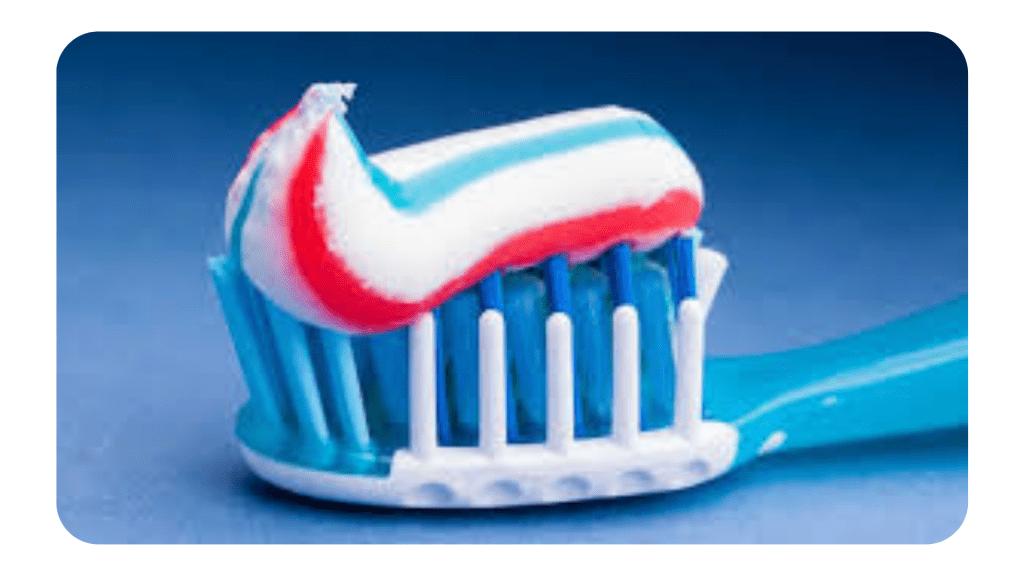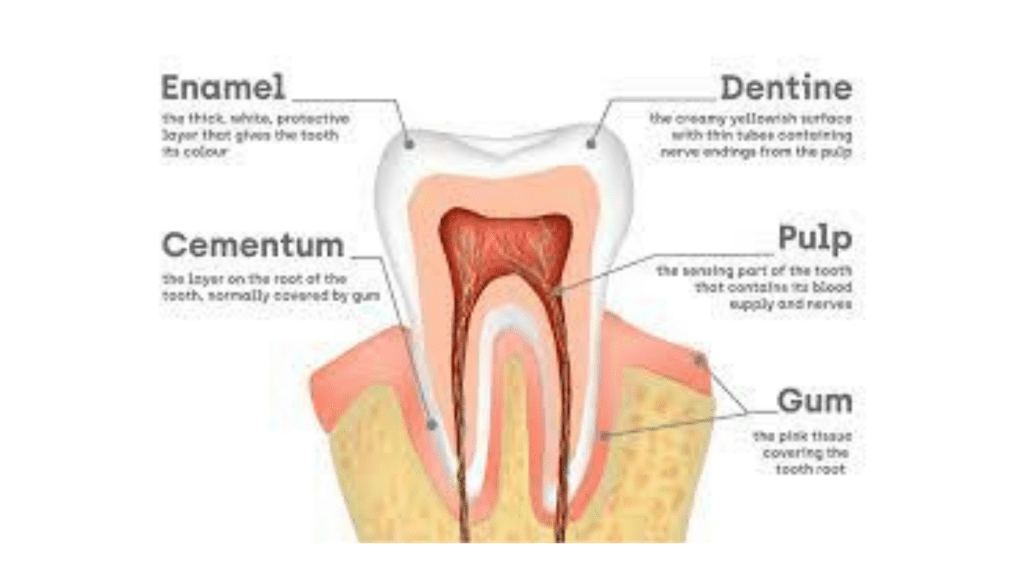


Do you have sensitive teeth? Tooth sensitivity is something that will affect the majority of us at some point in our lives, and it's likely that it already has. Even though it's unpleasant, there are some things in life that you just can't avoid doing. And while it might only be a mild annoyance for some people for a brief amount of time, others are forced to put up with it on a more consistent basis.
Make an appointment at Summerlin Dental SOlutions with Dr. Cohan if you have a history of tooth sensitivity that persists for an extended period of time. This will allow the dentist to determine the cause of the discomfort that you are feeling in your teeth. In the meantime, you might want to give a toothpaste specially formulated for individuals with tooth sensitivity a try.
There are many different conditions that can result in sensitive teeth, such as inflamed gums, weakened tooth enamel, cavities, receding gums, and so on. One of the most common causes of sensitive teeth is cavities. However, regardless of the cause, using toothpaste designed for teeth that are sensitive can help manage the pain in the interim while the root cause of the issue with your teeth is being addressed. Because using the incorrect kind of toothpaste can actually make teeth that are sensitive to pain even more sensitive, it is essential to select a toothpaste that is appropriate for the problem you are experiencing.
Because it closes off open tubules that lead to nerves that are more exposed, sensitivity toothpaste makes the nerve endings less sensitive. This happens because it seals off the nerves that are more exposed. It has been demonstrated that fluoride toothpaste is effective in preventing tooth decay and strengthening enamel; consequently, many of these pastes include fluoride as an additional ingredient in their formulations.
Find a toothpaste that is designed specifically for sensitive teeth and use that.
When searching for a toothpaste to treat sensitive teeth, you should first assess how severe your symptoms are and think about whether you require a toothpaste that focuses solely on providing relief from sensitivity. If you do require such a toothpaste, then you should look for one that is designed specifically for that purpose. If you want a sensitivity toothpaste that is truly effective, you might have to sacrifice some of the other benefits, such as the ability to whiten your teeth or your favorite flavor of toothpaste. If you prefer to use natural toothpaste, it may be difficult for you to find a product that offers complete protection against sensitivity because natural toothpaste brands do not typically contain the active ingredients that provide instant relief.
Bear in mind, however, that not all toothpastes designed specifically for teeth that are sensitive offer the same benefits. Some of them will be effective in treating sensitivity, but others of them will not be as effective in preventing tartar buildup or gum disease in the teeth. Some are more comprehensive than others, offering pain relief, cavity protection, and additional breath freshening in a single, convenient package. Others only offer one or two of these benefits. There are even toothpastes that can whiten your teeth while also preventing sensitivity in your tooth enamel.
When looking for the best toothpaste for sensitive teeth, there are a few considerations you should make, including the following:

Brand: There is a very large selection available for you to choose from! And despite the fact that selecting the alternative that provides the most affordable cost may seem appealing at times, this is not necessarily the most prudent course of action in every circumstance. Choose a product that is endorsed wholeheartedly by the dental community. If you already use toothpaste that you like, you might want to think about switching to a sensitive formulation made by the same brand. This would be ideal for people who have sensitive teeth. When in doubt, Colgate and Sensodyne are two trustworthy brands that are able to provide relief for skin that is sensitive. Sensodyne Extra Whitening and Sensodyne Repair offer a number of additional benefits in addition to relieving sensitivity. These benefits include cavity protection and a more gentle form of whitening than traditional whitening methods. In addition to that, the flavor isn't half bad.
The American Dental Association (ADA) has established that despite the fact that numerous brands of toothpaste claim to have a variety of benefits, this is not necessarily the case in all instances. The American Dental Association (ADA) will give their seal of approval to a product when they are satisfied that it is genuine and that it lives up to the claims that have been made about it. This demonstrates that the product is effective in combating tooth sensitivity, cavities, plaque, and other dental health problems. It is imperative that the toothpaste you choose have this certification in order to guarantee that it will be able to effectively treat your sensitivity. If it does not have this certification, you cannot be sure that it will treat your sensitivity effectively.
It's possible that you think toothpaste specially formulated for sensitive teeth will cost more than regular toothpaste, but that's not always the case. It is not hard to locate a high-quality product in the same price range that you would pay for any other brand of toothpaste. Finding such a product is not difficult. Also, keep in mind that the effort you put into maintaining good oral health will reward you handsomely in the long run. It is true that prevention is always preferable to treatment, and making an investment in products that promote excellent oral health can be done at home and will pay off in the long run. This is an example of a situation in which prevention is always preferable to treatment.
Ingredients: The efficiency of the toothpaste can be traced back to the individual components that go into making up the product. In this particular scenario, the two constituents that stand out the most are the potassium nitrate and the stannous fluoride. Potassium nitrate acts as the agent that soothes the nerves, and stannous fluoride (which is not a character from Game of Thrones) collaborates with the enamel of your teeth to form a repairing layer on the vulnerable parts of each tooth.
As a result, these vulnerable parts of each tooth are shielded from the searing pain that is brought on by sensitivity. Potassium nitrate is the component responsible for the effects. Avoid using toothpaste that does not contain fluoride because it will not provide the same benefits as fluoride-containing toothpaste. Home treatments for teeth that are sensitive include avoiding sugary foods and drinks.
According to the results of a study that was conducted in 2013, it was discovered that one in every eight people who visit the dentist do so because of sensitive teeth. However, in addition to these, there are also some helpful home remedies that you can try at home to combat the pain that comes from those sensitive teeth. There is no doubt that proper dental procedures are available to treat dental sensitivity, and dental insurance can help manage the cost of these procedures. These are the following:
Oil pulling

It is common knowledge that the technique of "oil pulling," which can be carried out with either coconut oil or sesame oil, can reduce the sensitivity of one's teeth. The technique of oil pulling, which has its origins in Ayurvedic medicine and has been practiced in India for centuries, entails swishing one tablespoon of oil around in your mouth for two to twenty minutes at a time before spitting it out. This process is repeated multiple times throughout the course of the day. According to the findings of one study, performing daily "oil pulling" with coconut oil can help reduce the formation of plaque and deal with the early symptoms of gingivitis.
Additionally, this practice can help deal with the discomfort associated with gingivitis. This, in turn, contributes to a reduction in tooth sensitivity. Research has shown that gingivitis, which is one of the most common causes of tooth sensitivity, can lead to gum recession, which is one of the most common causes of gum recession. Gingivitis is one of the most common causes of both tooth sensitivity and gum recession.
Garlic
For a very long time, people who suffer from excruciating toothaches have turned to garlic as a treatment. When you chew on a raw piece of garlic, the compound allicin, which has antimicrobial properties and kills the bacteria that cause oral diseases and tooth sensitivity, is released. These bacteria are the ones that cause oral diseases and tooth sensitivity. This aids in the fight against tooth sensitivity. It is possible to make a paste by combining three separate garlic cloves, a half teaspoon of salt, and a very small amount of warm water.
After applying the paste to the area of your skin that is particularly sensitive, you should wait a few minutes for it to take effect before removing it with warm water that has been diluted with salt. (And when you are finished, you really ought to go ahead and brush your teeth in the correct manner.)
Guava leaves
The guava fruit is good for your health on its own, but the leaves of the guava tree also have medicinal value and should not be thrown away. They include rutin, kaempferol, and quercetin, which are all anti-inflammatory compounds that can assist in reducing tooth sensitivity. This can be demonstrated by chewing on guava leaves for approximately three minutes, after which time the leaves should be spit out. A mouthwash can also be made by bringing about six guava leaves and one cup of water to a boil in a pot. After allowing it to steep for fifteen minutes, put it to the side so that it can cool down. After you've brushed your teeth, try swishing a pinch of salt around in your mouth for a few minutes.
Clove oil
Cloves have an analgesic effect on the human body! Additionally, it is well known that the condition of one's teeth can be improved by using clove oil. It is effective against a wide variety of oral infections due to the fact that it possesses properties that are antibacterial, anesthetic, and anti-inflammatory. After applying the mixture to the tooth in question, you should then rinse it off with some warm water to remove any remnants of the solution. The remedy can be prepared by combining one drop of clove oil with either one drop of almond oil or one drop of coconut oil.
Hydrogen peroxide
Hydrogen peroxide, which has been lauded for its efficacy as a mild antiseptic, can also be put to use as a mouth rinse to heal inflammation and care for gums that are sensitive. This use of hydrogen peroxide, which has received praise for its effectiveness, was discovered by accident. It is recommended that you combine approximately two capfuls worth of 3% hydrogen peroxide with an amount of warm water that is equal in volume. It is recommended that you spit out the solution after swishing it around in your mouth for a period of thirty seconds first. After using the hydrogen peroxide, thoroughly clean your mouth with water to remove any lingering residue. This should be done as soon as you are finished using the peroxide.
Saltwater rinse
Because of its antimicrobial and anti-inflammatory properties, a saltwater rinse is a time-honored treatment that is still recommended by a good number of dental professionals. Your oral hygiene will significantly improve as a result, as the bacteria that are currently in your mouth will be removed. Simply take about two cups of warm water, add half a teaspoon of salt to it, and then swish it around in your mouth for a few minutes before spitting it out. This should be done three times. This should be of some use. It is essential that you carry out these actions multiple times.
Turmeric
Curcumin is a compound that can help relieve pain and is also well-known for the anti-inflammatory effects that it possesses. Turmeric is a good source of curcumin. To alleviate pain and sensitivity in your teeth, make a paste on your gums using either fresh or dried turmeric and some water, and apply it there. Turmeric can be used either fresh or dried. You could also try rubbing a mixture onto your gums twice a day that consists of a half teaspoon of salt and a half teaspoon of mustard oil. The mixture that was described earlier would then get these additional ingredients added to it. To be clear, no one wants to deal with the discomfort of sensitive teeth.
However, maintaining a high standard of oral hygiene on a daily basis, in addition to taking a few extra precautions here and there, will go a long way toward resolving the issue. On the other hand, it is possible to circumvent the majority of the problems associated with tooth sensitivity. Just make sure to keep your dental appointments on a consistent basis. Yes, it's our mantra. And it's a pretty sound one all things considered.
CLICK HERE TO SCHEDULE YOUR APPOINTMENT!
GET TO KNOW YOUR BEST DENTIST IN SUMMERLIN
Dr. Marianne Cohan was voted The Best Dentist/ Dental Office and Best Cosmetic Dentist from The Las Vegas Review-Journal in 2020 and 2021. She received her Doctor of Dental Surgery (DDS) from the State University of New York at Buffalo in 1992.

With an emphasis on cosmetic dentistry, complete makeovers, and implant dentistry, Dr. Cohan is committed to continuing education and feels that we never stop learning. Dr. Cohan takes pride in using high-powered magnification to perform minimally invasive restorative dentistry. She uses all the latest technological advances including digital radiography, digital photography, computer simulations, and high-resolution pictures of your proposed treatment on 55-inch screens. She also utilizes CBCT (cone beam) and laser technology.
Dr. Cohan is always available to her patients and is available for any dental emergency.

It's natural to be concerned or anxious about getting cavities repaired in your tooth.
It is possible for fillings to cause discomfort in some patients. However, the majority of them only produce minimal to nonexistent pain during the process.
Take a few deep breaths and keep reading if you are avoiding going to the dentist because you are terrified of the pain that you will experience there. We will describe the process of cavity filling and let you know what to anticipate in terms of the level of pain or discomfort you may experience.
What factors influence how painful a filling procedure will be?
If you have a cavity in your tooth, your dentist will almost certainly advise you to get it filled as soon as humanly possible.
In order to alleviate the discomfort that cavities can cause and to remove the risk of a more serious infection, fillings are often performed. If the cavity is not treated, it can spread to the pulp of the tooth, which is extremely painful.
Cavities that are left untreated can result in the need for more invasive procedures, such as root canal therapy or tooth extraction.
When you get a cavity filled, your dentist will remove the decay that is already present in the tooth and then restore the tooth to its normal shape. This improves the health of your mouth and makes it feel more comfortable.
Your dentist will talk to you about what to anticipate throughout the operation, as well as the extent to which it will go. This is dependent on a number of different aspects. Here are some of the potential causes of discomfort during a filling procedure:
Decay of teeth is an ongoing process. It manifests as initially as white patches on the tooth enamel, which are brought on by minute amounts of mineral loss. Through maintaining good oral hygiene or receiving fluoride treatments, you can help put a halt to tooth decay.
On the other hand, if the enamel of the tooth continues to wear away, you can develop a cavity that needs to be filled.
Cavities that are found to be relatively little and treated at an early stage are the most straightforward and expedient to treat. If your cavity isn't particularly deep, you may not feel very much discomfort at all.
It is important to bear in mind that topical numbing gel does not numb the tooth tissue; rather, it numbs only the gums themselves so that the needle does not cause any pain or discomfort while the injection is being administered.
Some individuals suffer from a fear of needles, which causes them to dread getting the injection more than any other aspect of the process. However, other individuals only dislike the numb feeling that continues to exist in the face and tongue after a cavity has been filled.
A local application of numbing gel may be all that is necessary to fully remove any discomfort felt in the gums in certain cases. In any other case, your dentist will be able to halt the drilling and give you an injection of anesthetic if you start to feel any pain during the procedure.
Cavities that are deeper necessitate the removal of further deterioration and require more time to fill. In addition, deep cavities are located closer to the tooth's nerve ends than shallower cavities. During the process, these particular kinds of cavities have the potential to produce a greater amount of discomfort.
If you don't have a particularly high threshold for discomfort, your dentist may probably suggest getting an injection of anesthesia before working on deep cavities.
Where the cavity is located on the tooth
There are three different kinds of cavities, namely:
When detected in their early stages, the vast majority of root cavities can be treated with relative ease. Small root cavities can typically be simply filled with local anesthesia.
Because the cementum at the base of the tooth is a softer substance, it can decay considerably more rapidly than the rest of the tooth. Roots that are exposed as a result of receding gums are also susceptible to decay due to the fact that roots are not as durable as enamel.
Periodontal disease, often known as gum disease, is the cause of these types of cavities almost all of the time. The gums pull away from the teeth as a result of periodontal disease, exposing the sensitive root surface of the tooth.
The total amount of cavities
If you have multiple cavities in the same region of your mouth, your dentist may suggest treating all of them at the same time to save you time.
Because of this, the treatment could take significantly longer, which could result in increased discomfort. During the operation, you will be required to keep your mouth open for an extended amount of time, which may result in discomfort in the jaw or nausea.
It is possible that the extended process will require you to get extra anesthetic.
What kinds of numbing agents are there to choose from?
It is the purpose of numbing medications to eliminate or significantly lessen feelings of pain and discomfort.
Your dentist will provide a local anesthetic (such lidocaine, benzocaine, or epinephrine) in order to numb your tooth, gum, and jaw before performing the procedure. Because the nerves in your mouth won't be able to send any pain signals to your brain when these agents are present, you won't feel any discomfort when the dentist starts to drill into your teeth. There may be a tiny degree of discomfort that is described as a light sting, but this is simply an indication that the anesthetic is doing its job and the pain should subside shortly.
It's possible that your dentist has a personal preference for a particular brand. Talk to your dentist about the anesthetic they intend to use and the reasons they believe it will be most beneficial for you.
The following are some of the common numbing drugs that are used:
If you know or suspect that you have an allergy to any of these drugs or to any other kind dental anesthesia, be careful to let your dentist know.
If you're anxious, you might also find relief from nitrous oxide (commonly known as laughing gas), which is delivered to the patient in the form of a breathing mask that covers the nose. Nitrous oxide can be used to lessen the sensation of pain, but its primary purpose is to calm fear and anxiety.
Is there pain after a filling?
After the operation, it is possible that your tooth can feel unpleasant or sensitive for up to two days.
It is natural to feel some discomfort, and it should only last for a short time. If you are experiencing substantial discomfort or observe any swelling or pus, you should contact your dentist as soon as possible. This could be an indication that you have an infection or that you require extra treatment, such as a root canal.
Any sensitivity or mild pain may become more severe if you consume something that is either extremely hot or extremely cold. It's possible that breathing in chilly air will also make your teeth tingle or feel painful.
It's also possible that, for the next several days, your gums will feel raw or sore, particularly when you clean or floss your teeth.
Why Take Such a Risk? The use of fillings is preferable to the alternative.
If you are still nervous about getting a filling, it may assist to understand why one would get a filling in the first place if you want to reduce your anxiety about the procedure. Cavities are the reason why we need to have fillings. Cavities, also known as decaying areas in teeth, can be recognized on a tooth's surface as the appearance of very small holes. Acids released by harmful bacteria known as plaque, which adheres to your teeth and feeds on food debris that is left in your mouth after meals, are the root cause of these problems.
If cavities are not filled and allowed to progress unchecked, the decay can get so severe that it reaches the nerve within the bone, causing excruciating agony. This can happen if cavities are not filled and allowed to progress unchecked. If the cavity continues to spread and reaches the gum, it is possible that this may also cause a great deal of discomfort, and it may even lead to an infection. Ultimately, the tooth will be lost.
When cavities have progressed to this stage, the essential treatments consist of more intensive procedures such as root canals and extractions. The discomfort associated with these treatments is significantly worse than that of getting a filling. As a consequence of this, getting a filling is invariably the best alternative that comes with the fewest adverse consequences.
It is not necessary for patients to feel anxious when receiving treatment for oral health issues or having cavities filled. At Summerlin Dental Solutions, our highly trained and empathetic dental specialists are able to attend to all of your dental requirements and ensure that you leave our office with a smile. Make an appointment with one of our in-house specialists here at Summerlin Dental Solutions in Las Vegas to get a cavity filled if you believe you may have one. You may get an appointment for the same day by calling the number (702)341-9160 today.
CLICK HERE TO SCHEDULE YOUR APPOINTMENT!
GET TO KNOW YOUR BEST DENTIST IN SUMMERLIN
Dr. Marianne Cohan was voted The Best Dentist/ Dental Office and Best Cosmetic Dentist from The Las Vegas Review-Journal in 2020 and 2021. She received her Doctor of Dental Surgery (DDS) from the State University of New York at Buffalo in 1992.

With an emphasis on cosmetic dentistry, complete makeovers, and implant dentistry, Dr. Cohan is committed to continuing education and feels that we never stop learning. Dr. Cohan takes pride in using high-powered magnification to perform minimally invasive restorative dentistry. She uses all the latest technological advances including digital radiography, digital photography, computer simulations, and high-resolution pictures of your proposed treatment on 55-inch screens. She also utilizes CBCT (cone beam) and laser technology.
Dr. Cohan is always available to her patients and is available for any dental emergency.